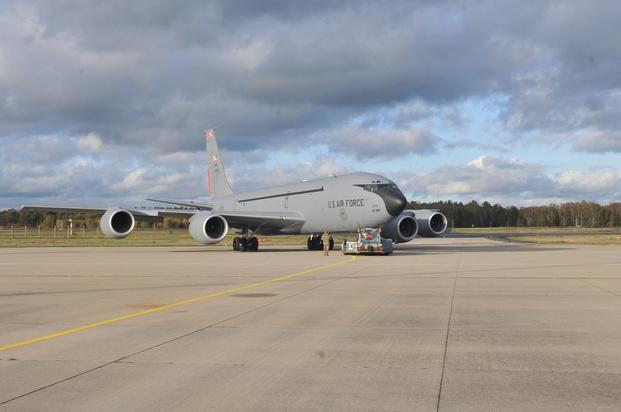An unidentified drone penetrated the restricted airspace above the strategically important NATO base in Geilenkirchen on the evening of 9 October, according to Der Spiegel.
The incident marks the latest in a series of airspace violations across NATO territory that have prompted heightened security measures and coordinated international responses.
According to internal government documents reviewed by Der Spiegel, the suspicious aircraft was detected shortly after 7 pm in the flight prohibition zone surrounding the base located in North Rhine-Westphalia. The drone remained at low altitude over the runway of the airfield for approximately one minute before disappearing from monitoring systems. The military police reported the incident to civilian law enforcement immediately upon detection.
The base, which serves as the operational hub for NATO's AWACS reconnaissance aircraft, triggered immediate alarm protocols. Both military and civilian police units were deployed to search the surrounding area and investigate the intrusion. According to the internal documentation, police conducted thorough searches but were unable to locate either the drone or identify the operator. Despite the unsuccessful search, authorities implemented what the memo described as "heightened protective measures" at the facility.
Broader context of escalating violations
The Geilenkirchen incident occurs within a pattern of repeated airspace violations that have affected multiple NATO member states throughout September and into October. These violations have prompted coordinated diplomatic and military responses from the alliance.
On the night of 10 September, Russian drones entered Polish airspace in a significant incursion. Polish military forces intercepted and shot down approximately four of the 19 unmanned aircraft detected. One drone caused damage to residential property in the Lublin Voivodeship, with debris scattered across several villages. In response, Poland activated Article 4 of the NATO treaty that same day, triggering consultations among alliance members regarding the security threat.
NATO Secretary General Mark Rutte responded with a formal announcement on 12 September of a new operation designated "Eastern Guard," deployed along the alliance's eastern flank. The operation, according to alliance statements, targets threats related to drone operations and includes coverage of Polish and Romanian territory. Polish President Andrzej Duda subsequently signed a resolution on 14 September, authorizing NATO military presence on Polish soil under the Eastern Guard framework.
Similar incidents have been documented across the region. Romania declared an air alert in northern regions on 13 September following detection of strike drone threats. Two F-16 fighters were scrambled at 6 pm, intercepting what the Romanian Defense Ministry identified as a Russian Shahed drone over the Danube around 7 pm The ministry clarified that the drone did not traverse populated areas and posed no immediate civilian threat. Ukrainian President Volodymyr Zelenskyy disputed this assessment, stating that the Russian drone remained over Romanian territory for 50 minutes.
Estonia experienced its own airspace violation on 19 September when three Russian fighters spent 12 minutes in Estonian airspace. Foreign Minister Margus Tsahkna characterized the incursion as "a violation of territorial integrity and UN Charter principles that require refraining from the threat of force."
The escalation prompted an emergency session of the UN Security Council in New York on 22 September, where Ukrainian Foreign Minister Andriy Sybiha was present to discuss the Russian aircraft violations of Estonian airspace. Sybiha emphasized during the session that similar threats require immediate neutralization. The North Atlantic Council convened under Article 4 of the Washington Treaty on 23 September to officially consult on and condemn Russia's September 19 incursion into Estonian airspace.




